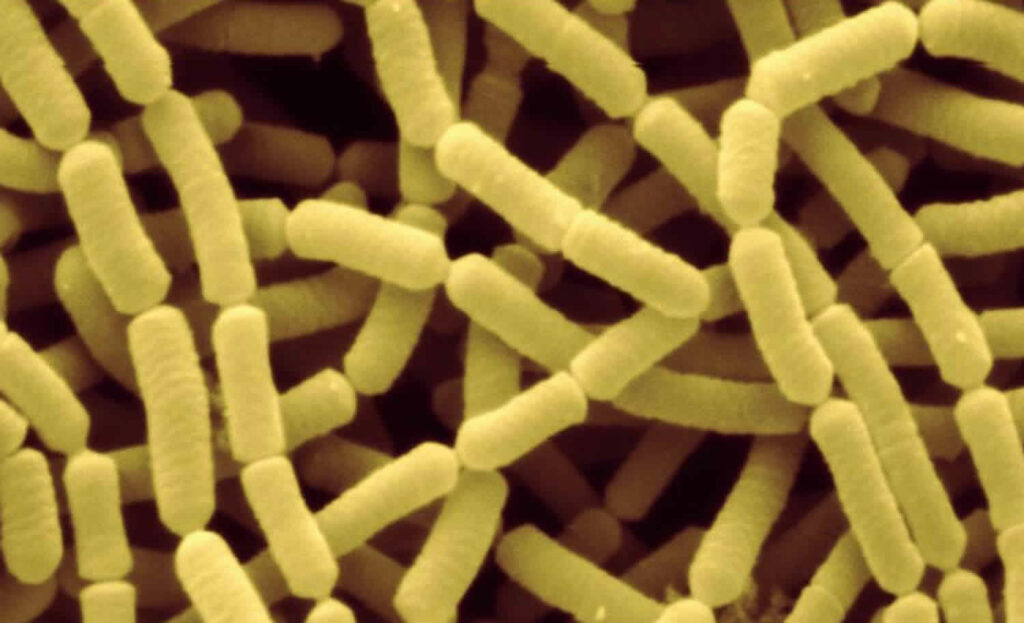Understanding Lactobacillus rhamnosus
What is Lactobacillus rhamnosus?
Lactobacillus rhamnosus is a species of bacteria belonging to the Lactobacillus genus, which is commonly found in the human gastrointestinal tract, as well as in fermented foods such as yogurt, kefir, and certain cheeses. It is considered a probiotic bacterium, meaning it confers health benefits when consumed in adequate amounts.
Benefits of Lactobacillus rhamnosus
Digestive Health Support
Lactobacillus rhamnosus helps maintain a healthy balance of gut bacteria by competing with harmful pathogens for space and nutrients in the gastrointestinal tract. It may alleviate symptoms of digestive issues such as diarrhea, irritable bowel syndrome (IBS), and inflammatory bowel disease (IBD).
Immune System Modulation
Lactobacillus rhamnosus stimulates the production of immunoglobulins and enhances the activity of immune cells, helping to strengthen the body’s immune response against infections and pathogens. It may reduce the risk of respiratory tract infections, allergies, and other immune-related conditions.
Vaginal Health Support
Lactobacillus rhamnosus colonizes the vaginal microbiota and helps maintain a healthy balance of beneficial bacteria, preventing the overgrowth of harmful microorganisms. It may reduce the risk of vaginal infections such as bacterial vaginosis and yeast infections.
Allergy Prevention and Management
Lactobacillus rhamnosus has been studied for its potential role in preventing and managing allergies, particularly in children. It may modulate the immune response to allergens and reduce the incidence and severity of allergic reactions such as eczema, asthma, and hay fever.
Weight Management
Some research suggests that Lactobacillus rhamnosus may support weight loss and weight management by influencing metabolism, appetite regulation, and fat storage. It may also improve insulin sensitivity and reduce inflammation, contributing to overall metabolic health.
Mental Health and Mood Enhancement
Emerging evidence suggests a link between gut health and mental health, with Lactobacillus rhamnosus potentially exerting beneficial effects on mood and cognition. It may reduce symptoms of anxiety, depression, and stress by modulating the gut-brain axis and neurotransmitter production.
Side Effects of Lactobacillus rhamnosus
Mild Digestive Discomfort
In some individuals, especially when first starting a probiotic supplement containing Lactobacillus rhamnosus, mild digestive discomfort such as gas, bloating, or diarrhea may occur. These symptoms usually subside as the body adjusts to the new bacteria.
Risk of Infection in Immunocompromised Individuals
While Lactobacillus rhamnosus is generally considered safe for most people, individuals with compromised immune systems, such as those undergoing chemotherapy or organ transplant recipients, may be at risk of developing infections from probiotic supplementation. It’s essential to consult with a healthcare professional before starting probiotics in such cases.
Dosage Recommendations for Lactobacillus rhamnosus
Probiotic Supplements
The appropriate dosage of Lactobacillus rhamnosus may vary depending on the formulation and concentration of probiotic bacteria in the supplement. It’s essential to follow the manufacturer’s instructions and consult with a healthcare provider for personalized recommendations.
Food Sources
Consuming fermented foods rich in Lactobacillus rhamnosus, such as yogurt, kefir, sauerkraut, and kimchi, can contribute to overall gut health. Including these foods in your diet regularly can provide a natural source of probiotics without the need for supplementation.
FAQs About Lactobacillus rhamnosus
Can Lactobacillus rhamnosus be taken with antibiotics?
Yes, Lactobacillus rhamnosus can be taken concurrently with antibiotics to help prevent antibiotic-associated diarrhea and maintain gut health. However, it’s essential to space out the probiotic and antibiotic doses to avoid interference with antibiotic efficacy.
Is Lactobacillus rhamnosus safe for pregnant women?
Lactobacillus rhamnosus is generally considered safe for pregnant women and may offer benefits such as reducing the risk of gestational diabetes and preventing vaginal infections. However, it’s advisable to consult with a healthcare provider before starting any new supplement during pregnancy.
Can Lactobacillus rhamnosus cause yeast infections?
While Lactobacillus rhamnosus is typically associated with maintaining vaginal health and preventing yeast infections, in rare cases, probiotic supplements containing this bacterium may trigger vaginal yeast infections in some individuals. If you experience symptoms of a yeast infection, discontinue use and consult with a healthcare professional.
How long does it take for Lactobacillus rhamnosus to work?
The time it takes to experience the benefits of Lactobacillus rhamnosus supplementation may vary depending on individual factors such as gut health, diet, and the specific condition being addressed. Some people may notice improvements in digestive symptoms within a few days to weeks of starting probiotic supplementation, while others may require more time.
Can Lactobacillus rhamnosus help with lactose intolerance?
Lactobacillus rhamnosus may help alleviate symptoms of lactose intolerance by aiding in the digestion of lactose, the sugar found in dairy products. It produces lactase, the enzyme responsible for breaking down lactose, which can improve tolerance to lactose-containing foods.
Is Lactobacillus rhamnosus suitable for children?
Lactobacillus rhamnosus is generally safe for children and may offer various health benefits, including supporting digestive health, boosting immunity, and reducing the risk of allergies. However, it’s essential to use age-appropriate probiotic formulations and consult with a pediatrician before giving probiotics to children, especially infants and young children.
Can Lactobacillus rhamnosus be used to treat acne?
While some research suggests a potential link between gut health and skin conditions such as acne, there is limited evidence to support the use of Lactobacillus rhamnosus specifically for acne treatment. More research is needed to determine its efficacy for this purpose.
Conclusion
Lactobacillus rhamnosus is a beneficial probiotic bacterium that offers various health benefits, including supporting digestive health, boosting immunity, and promoting overall well-being. With its minimal side effects and potential therapeutic effects, L. rhamnosus has become a popular supplement for improving gut health and addressing various health concerns. Whether taken in the form of probiotic supplements or consumed through fermented foods, incorporating Lactobacillus rhamnosus into your daily routine can contribute to a healthy gut microbiome and enhanced overall health. However, it’s essential to consult with a healthcare professional before starting any new supplement, especially if you have underlying health conditions or concerns.
- Upper Face Anti Wrinkle Treatment Near Wotton, Surrey - January 3, 2025
- Traptox Aka Trapezius Botox Treatment Near Hook, Surrey - January 3, 2025
- Traptox Aka Trapezius Botox Treatment Near Shamley Green, Surrey - January 3, 2025

